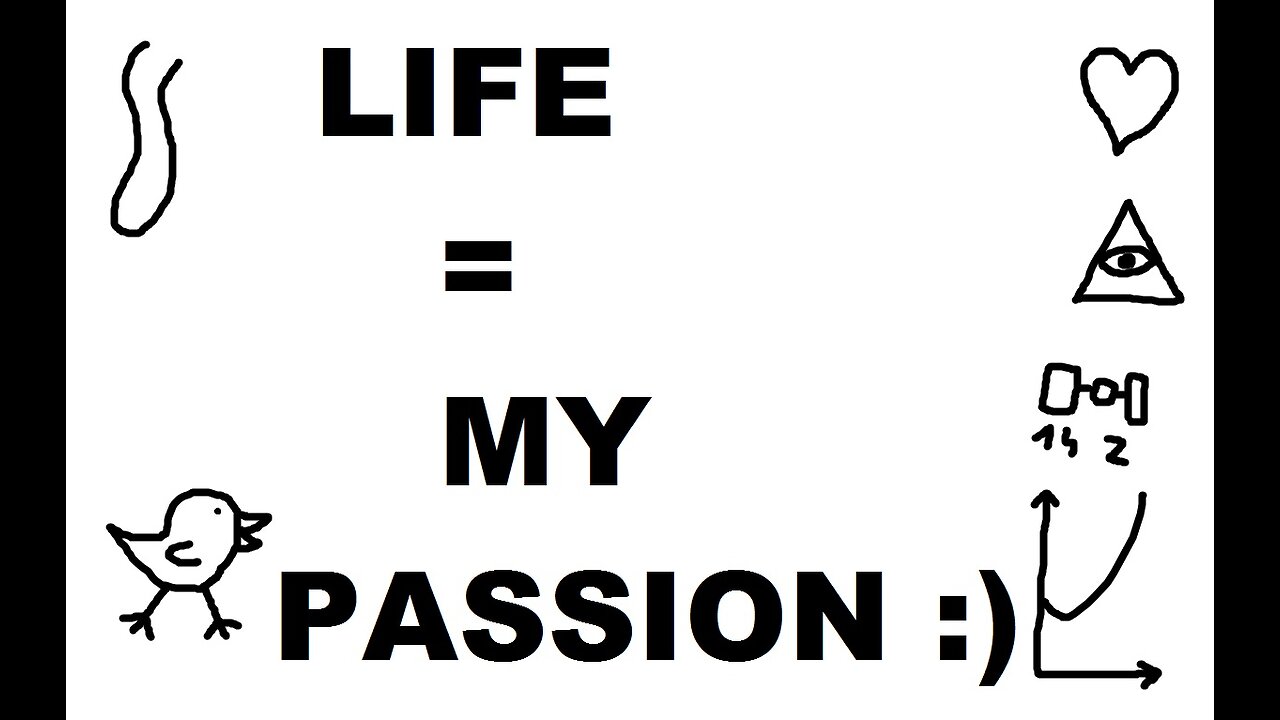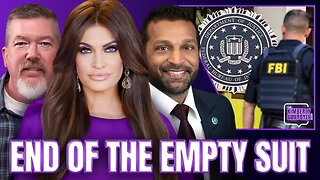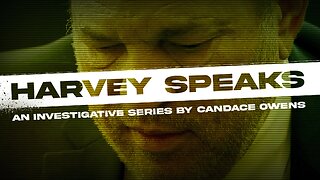Premium Only Content

Mind Programming - Life Is My Passion - Silent Version :)
Thanks For Watching! :))
Special Thanks:
Dr. Lobo Garris & Ofra Haza & Wes Craven & Klaudia Pingot & Harry Gaze & Judy Garland & Basia Pasek & Aneta Siurnicka & Daniel Eichinger & Peyo & Dwayne Johnson & Michael Franzese & Jeff Bezos & R. Kelly & Mariah Carey & Kayah & B.J. Thomas & Mick Hucknall & Christopher Lee & Don Messick & Susan Blu & Cam Clarke & Townsend Coleman & Wendee Lee & Susan Silo & Jim Cummings & Fred Tatasciore & Kmyle & Troy Baker & Jean Reno & Tara Strong & Christine Cavanaugh & Hank Azaria & Sean Astin & Rod Stewart & Zendaya & Ben Watkins & Brian Tracy & La Gorda & Danny Trejo & Robert Kiyosaki & Kurt Russell & Charlize Theron & Kevin Durand & Mike Myers & Jay Roach & Gary Sinise & Michael Shannon & Mabi Thobejane & Marhabula & Porfiry Iwanow & Olga Kurylenko & Karel Roden & Jan Triska & Aleksandr Antonov & Sabrina Gonzalez Pasterski & Ralph Waldo Emerson & Derren Brown & Katarzyna Rosłan & Dynamo & Til Schweiger & Lilla My & Troy Baker & Jeff Bennett & Zoe Saldana with Arnold Stang with Rihanna and Jack Palance
The word subconscious represents an anglicized version of the French subconscient as coined by John Norris, in "An Essay Towards the Theory of the Ideal or Intelligible World. Design'd for Two Parts. The First Considering it Absolutely in It Self, and the Second in Relation to Human Understanding” (1708): "The immediate objects of Sense, are not the objects of Intellection, they being of a Subconscient [subconscious] nature." A more recent use was in 1889 by the psychologist Pierre Janet (1859–1947), in his doctorate of letters thesis, De l'Automatisme Psychologique.[1] Janet argued that underneath the layers of critical-thought functions of the conscious mind lay a powerful awareness that he called the subconscious mind.[2]
In the strict psychological sense, the adjective is defined as "operating or existing outside of consciousness".[2]
Locke and Kristof write that there is a limit to what can be held in conscious focal awareness, an alternative storehouse of one's knowledge and prior experience is needed, which they label the subconscious.
The idea of the subconscious as a powerful or potent agency has allowed the term to become prominent in New Age and self-help literature, in which investigating or controlling its supposed knowledge or power is seen as advantageous. In the New Age community, techniques such as autosuggestion and affirmations are believed to harness the power of the subconscious to influence a person's life and real-world outcomes, even curing sickness. Skeptical Inquirer magazine criticized the lack of falsifiability and testability of these claims.[13] Physicist Ali Alousi, for instance, criticized it as unmeasurable and questioned the likelihood that thoughts can affect anything outside the head.[14] In addition, critics have asserted that the evidence provided is usually anecdotal and that, because of the self-selecting nature of the positive reports, as well as the subjective nature of any results, these reports are susceptible to confirmation bias and selection bias.[15]
Psychologists and psychiatrists use the term "unconscious" in traditional practices, where metaphysical and New Age literature, often use the term subconscious.[16] It should not, however, be inferred that the concept of the unconscious and the New Age concept of the subconscious are precisely equivalent, even though they both warrant consideration of mental processes of the brain. Psychologists and psychiatrists take a much more limited view of the capabilities of the unconscious than are represented by New Age depiction of the subconscious. There are a number of methods in use in the contemporary New Age and paranormal communities that affect the latter: Affirmations, Autosuggestion, Binaural beats, Hypnosis, Subliminal message.
Taoist music is the ceremonial music of Taoism. The importance of music in Taoist ceremony is demonstrated by revealing how central beliefs are reflected through elements of music such as instrumentation and rhythm. The principal belief of the Yin Yang is reflected in the categorization of musical tones. The two main tones of Taoist chanting are the Yin Tone and the Yang Tone.[48] Taoist music can be found in every ceremonial occasion, including "Five Offerings" and the "Ode of Wishing for Longevity."[49]
Als Geistliche Musik oder Religiöse Musik bezeichnet man im Gegensatz zur weltlichen Musik solche, die für religiöse Anlässe oder mit einem religiösen Einfluss komponiert bzw. musiziert wird. Im Christentum umfasst dies insbesondere die Kirchenmusik.[1]
Bei den ethnischen Religionen ist die sakrale Musik ein Mittel, um mit den Göttern in Verbindung zu treten. Durch Gesang und rituelle Tänze soll eine magische Beschwörung bewirkt werden.
In den meisten Religionen soll das gemeinsame Singen Gemeinschaftsgefühl vermitteln und religiöse Inhalte vermitteln, insbesondere bei der Feier von religiösen Zeremonien.
-
 49:43
49:43
Vedic compatability astrology
12 hours agoCoffee w/ Kingpins Katie Haley & Her Book!
571 -
 2:49:10
2:49:10
TimcastIRL
12 hours agoElon Musk Says X Hit By MASSIVE Cyberattack From Ukraine, Rumble Hit Too w/Ben Davidson| Timcast IRL
227K124 -
 2:05:10
2:05:10
Kim Iversen
14 hours agoFree Speech for Me, But Not for Thee: Trump Admin’s Protester Crackdown Sounds MAJOR Alarms
87.1K468 -
 1:29:26
1:29:26
Glenn Greenwald
15 hours agoICE Detains Permanent Resident for Protesting Israel; European Leaders Make Maniacal Rearmament Vows They Cannot Keep | SYSTEM UPDATE #421
156K292 -
 1:02:56
1:02:56
Donald Trump Jr.
17 hours agoUSAID Slush Fund Slashed, X Cyberattack, Plus Interview with Nate Morris | Triggered Ep.223
149K186 -
 5:48:40
5:48:40
Dr Disrespect
20 hours ago🔴LIVE - DR DISRESPECT - THE SHOTTY BOYS - WARZONE, PUBG, FORTNITE
259K43 -
 2:12:50
2:12:50
Adam Carolla
22 hours agoDouble Murder Convict to be executed by Firing Squad + Comedian Elon Gold + Comedian Carol Leifer
104K22 -
 46:08
46:08
Kimberly Guilfoyle
18 hours agoBad Day to be a Bad Guy: FBI Taking Down World’s Worst Criminals, Live with John Nantz | Ep.203
215K85 -
 DVR
DVR
Redacted News
16 hours agoWhat's REALLY going on in Syria? | Redacted with Natali Morris
211K146 -
 54:18
54:18
Candace Show Podcast
17 hours agoHarvey Speaks: Jessica Mann & The Five Year Affair | Ep 3
232K125